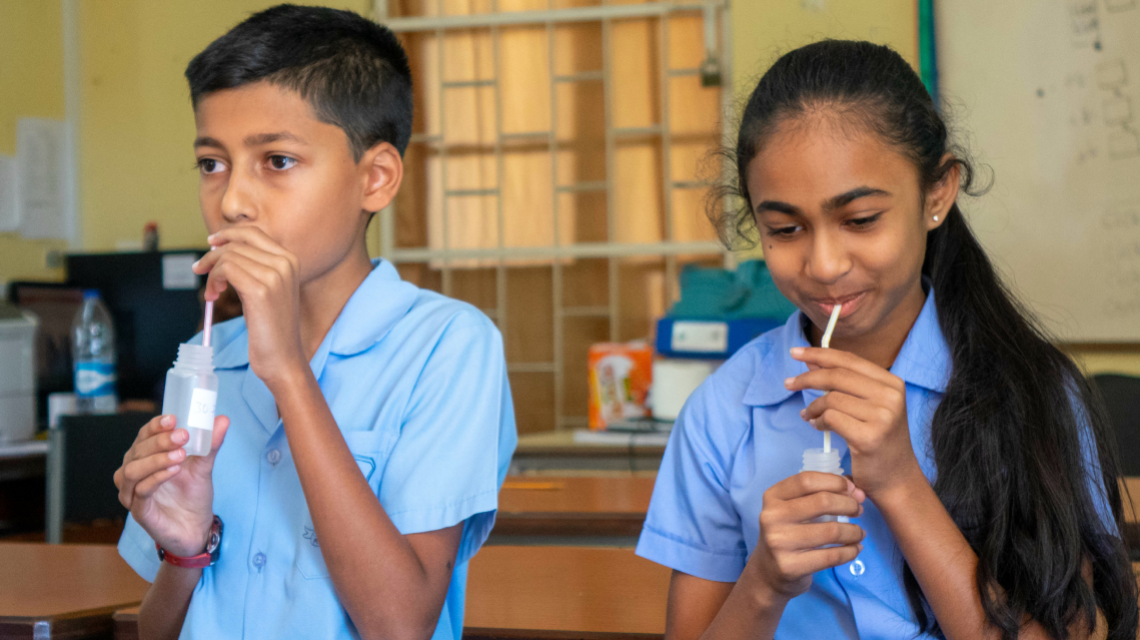A gust of economic prosperity is sweeping through Mauritius, a bustling island nestled in the Indian Ocean. While mounting affluence has brought opportunity, it has also given rise to unhealthier habits. For many countries, growing wealth often means growing waistlines and the accompanying preventable diseases. To better understand the impact of nutrition on national health, countries like Mauritius are turning to nuclear techniques.
“There is growing interest in studying nutrition to better target health interventions and assess their impact,” said Cornelia Loechl, Head of the IAEA’s Nutrition Section. “Many countries, like Mauritius, now face a double burden — where undernutrition and micronutrient deficiencies coexist with overweight and obesity — increasing the risk of diet-related, non-communicable diseases.”
In the last few decades, the gross domestic product of Mauritius has tripled, thanks largely to tourism and the textile industry, and the country now boasts one of the highest income per capita in Africa. Comprehensive health care is free, and regional health centres service the majority of the population.
But a rise in fast food consumption, coupled with a decline in physical activity and increased life expectancy, have led to the country now having the highest rates of obesity and diabetes in Africa. Non-communicable diseases have soared, becoming responsible for 80% of deaths in 2016, with diabetes alone accounting for 24% of mortality, and cancer killing around 12%.
“The pattern of cancer in Mauritius is very different from that in mainland Africa,” said Shyam Manraj, Director of Laboratory Services and National Cancer Registry Coordinator at the Ministry of Health and Quality of Life. “The country has the highest rate of breast, colorectal and endometrial cancer in the continent. These types of cancer are commonly linked to diet.”
To tackle this growing burden, the authorities in Mauritius have decided to improve the monitoring of obesity and its impact. With the help of the IAEA, it has carried out several studies since 2009 to measure body composition using a stable isotope method called the deuterium dilution technique (see deuterium dilution and DXA). These studies paint a more accurate picture than those using standard measurements, such as the body mass index (BMI).
“The deuterium dilution technique helps to determine the amount of body fat and fat-free mass,” said Loechl. “This is important because there are negative health consequences associated with a higher amount of body fat.”
The national Central Health Laboratory in Mauritius first started to look at the magnitude of obesity in children aged 6 to 13 to find out when they started to become overweight, and what health risks that could carry. The results showed that the BMI for that age group underestimated obesity and overweight in both boys and girls, and that chronic diseases were just around the corner for many young people. “We found an increase in insulin resistance, which means the children are predisposed to non-communicable diseases, especially diabetes,” said Noorjehan Joonus, Head of Biochemistry Services at the Central Health Laboratory, who is leading these studies.
“We communicated the results to the Ministries of Health and Education, and there has been an increase in physical education at schools,” Joonus added. “They now have physical activity every day, rather than on a weekly basis.”
In addition, the government has stepped up other measures: an existing tax on sugar was raised, and stricter controls were placed on food sold at schools. They also increased nutrition counselling in all regional health centres. “When you are in the phase of pre-diabetes it is reversible, but once you become diabetic it is irreversible, so we offer diet advice at an early stage,” said Anju Gowreesunkur, a nutritionist at the Ministry of Health and Quality of Life.
Learning about body composition is very important because it is the right marker to measure body fat, and if you have the right marker you can know exactly what the situation is in the country.






